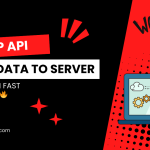The Best Fluffy Pancakes recipe you will fall in love with. Full of tips and tricks to help you make the best pancakes.
The Impact of IoT on Precision Farming
IoT, or the Internet of Things, has been revolutionizing various industries, and agriculture is no exception. In precision farming, IoT technologies play a crucial role in transforming traditional agricultural practices into smart, data-driven processes that optimize resource utilization, increase productivity, and reduce environmental impact.
Enhanced Crop Monitoring and Management
One of the key aspects of precision farming is the ability to monitor crops in real-time and make data-driven decisions. IoT devices such as sensors, drones, and satellite imagery provide farmers with valuable insights into crop health, soil moisture levels, temperature, and more. By collecting and analyzing this data, farmers can identify issues early, adjust watering and fertilization schedules, and prevent crop diseases.
Precision Irrigation Systems
IoT-enabled precision irrigation systems are transforming how water is managed in agriculture. These systems use sensors to monitor soil moisture levels and weather conditions, allowing farmers to precisely control the amount of water delivered to crops. By ensuring that crops receive the right amount of water at the right time, farmers can optimize water usage, reduce water wastage, and improve crop yields.
Smart Pest Control
Pest infestations can devastate crops if not detected and addressed promptly. IoT devices such as smart traps and monitoring systems help farmers identify pest hotspots and take targeted action. By leveraging IoT data on pest populations and activity, farmers can implement integrated pest management strategies that minimize the use of chemicals and reduce environmental impact.
Data-Driven Decision Making
IoT technologies generate vast amounts of data that can be analyzed to make informed decisions. By leveraging data analytics and machine learning algorithms, farmers can gain valuable insights into crop performance, predict yields, optimize planting strategies, and improve overall farm efficiency. This data-driven approach enables farmers to maximize productivity while minimizing costs and environmental impact.
Conclusion
IoT is transforming precision farming by providing farmers with real-time data, actionable insights, and automation capabilities that enhance crop management practices. By embracing IoT technologies, farmers can optimize resource usage, increase yields, and contribute to sustainable agricultural practices. The future of agriculture lies in harnessing the power of IoT to create smarter, more efficient farming systems.




